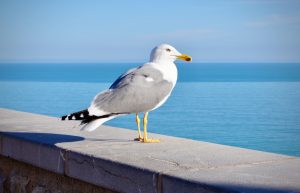Short answer
The average lifespan of a seagull is around 10 to 15 years.
Life expectancy
The average lifespan of a seagull varies depending on the species. Generally, seagulls can live up to 10 to 15 years in the wild. However, certain factors such as food availability, predation, and habitat quality can influence their lifespan. Some larger species of seagulls, like the Herring Gull, have been known to live for over 20 years.
Seagulls face numerous challenges throughout their lives that can impact their lifespan. They are scavengers and opportunistic feeders, which exposes them to a wide variety of potential dangers. Pollution, habitat loss, and human interference also contribute to their shorter lifespans. Additionally, seagulls face predation from larger predators, such as raptors and mammals, which can significantly reduce their lifespan.
However, it's essential to note that seagulls in captivity have been known to live much longer lives compared to their wild counterparts. In a controlled environment with proper care and nutrition, some seagulls have lived up to 25 years. Factors like a consistent food source, minimal predation risk, and veterinary care contribute to their extended lifespan in captivity. Overall, while the average lifespan of a seagull may be relatively short, certain circumstances can significantly affect their longevity.
Some interesting facts about Seagull
- Seagulls, also known as gulls, belong to the family Laridae and are found worldwide, except in Antarctica.
- There are approximately 50 different species of seagulls, with the herring gull being one of the most common and well-known species.
- Seagulls have a highly adaptable diet, which includes fish, invertebrates, small mammals, birds, carrion, and even garbage. This adaptability allows them to survive in various coastal habitats and urban areas.
- These birds are social creatures and often nest and breed in colonies. They tend to have complex and vocal communication, which helps them navigate and communicate within their groups.
- Seagulls are known for their impressive flying skills, adapting to soaring effortlessly in coastal winds and being able to hover in mid-air. Additionally, they have the ability to drink both saltwater and freshwater, thanks to a specialized gland located above their eyes that helps excrete excess salt.
Summary
Seagulls, on average, have a lifespan of around 10 to 15 years, although some species can live for up to 30 years in favorable conditions. Factors such as diet, predation, environmental conditions, and human interference can impact their longevity. These adaptable birds demonstrate high survival rates in urban and coastal areas where they can find abundant food sources. While seagulls might appear common and often overlooked, they play an important role in controlling certain populations and are considered a vital part of marine ecosystems.




